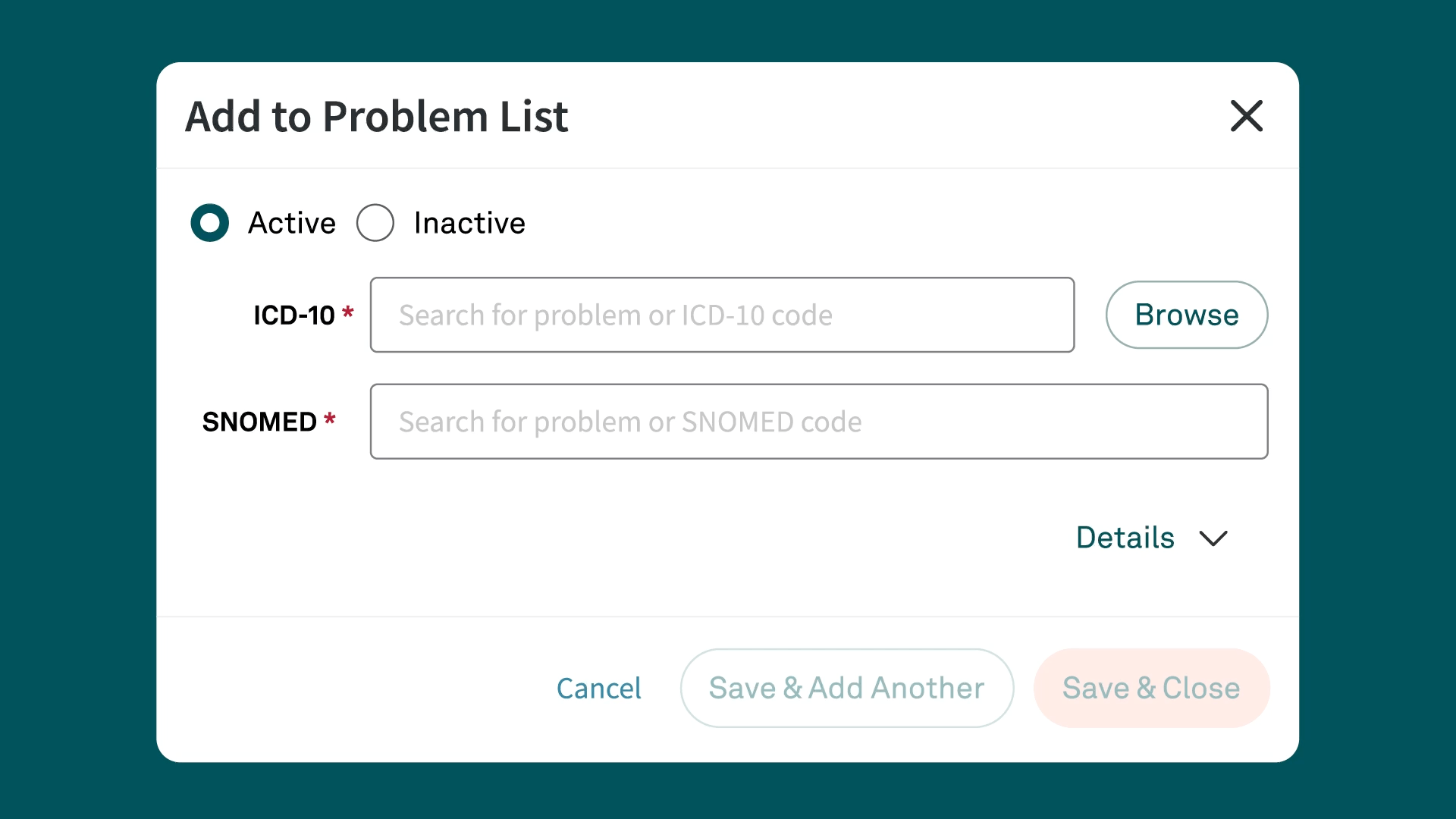ICD-10 Code N18.9
Chronic kidney disease, unspecified
What is the code N18.9?
N18.9 is an ICD-10-CM code used in medical coding and billing to represent “chronic kidney disease, unspecified.” Chronic kidney disease (CKD) is a long-term condition where the kidneys do not function effectively, leading to the accumulation of waste products in the body. Use this code when the stage of CKD is not specified in the medical documentation provided by healthcare providers.
Download your free resource now
Access it instantly — just complete the form

Detailed description of N18.9
CKD is a progressive condition characterized by the gradual loss of kidney function over time. The kidneys play an important role in filtering waste and excess fluids from the blood, which are then excreted in the urine. When kidney function declines, waste products can accumulate to dangerous levels, causing various health problems. The ICD-10 code N18.9 is used specifically when the stage of CKD is not documented. This code is important for capturing instances where CKD is diagnosed, but the medical records lack detailed information about the extent of the disease.
Symptoms commonly associated with N18.9
Patients with chronic kidney disease may exhibit a range of symptoms, particularly as the disease progresses. Common symptoms include:
- Fatigue and weakness
- Swelling in the legs, ankles, or feet (edema)
- Shortness of breath
- Nausea and vomiting
- Loss of appetite
- Persistent itching
- Changes in urine output (e.g., decreased urination)
- Muscle cramps, especially in the legs
- Difficulty sleeping
- High blood pressure that is difficult to control
Related and similar ICD-10 codes
There are several ICD-10 codes related to chronic kidney disease that provide more specific information about the stage of the disease:
- N18.1: Chronic kidney disease, stage 1
- N18.2: Chronic kidney disease, stage 2 (mild)
- N18.30: Chronic kidney disease, stage 3, unspecified
- N18.31 Chronic kidney disease, stage 3a
- N18.32 Chronic kidney disease, stage 3b
- N18.4: Chronic kidney disease, stage 4 (severe)
- N18.5: Chronic kidney disease, stage 5
- N18.6: End stage renal disease
Appropriate usage and guidelines for N18.9
When coding for chronic kidney disease using N18.9, the documentation must clearly indicate a diagnosis of CKD without specifying the stage. Coders should verify that no additional information is available that would allow for a more specific code. Use this code when the healthcare provider has not documented the stage of CKD or when the stage cannot be determined based on the available medical records. When using N18.9 always code first any associated diabetic chronic kidney disease (E08.22, E09.22, E10.22, E11.22, E13.22) and/or any associated hypertensive chronic kidney disease (I12.-, I13.-) as indicated by the instructional note for this category. Proper use of N18.9 ensures accurate reporting and appropriate reimbursement for services provided.
Common pitfalls in coding with N18.9
One of the common pitfalls in coding with N18.9 is the failure to review the medical records thoroughly. Coders should meticulously check the documentation for any mention of the CKD stage. It is important to avoid using N18.9 when there is sufficient information to determine the exact stage of CKD. Using a more specific code is always preferable as incorrect use of unspecified codes can lead to inaccurate coding and potential issues with reimbursement, as using a more specific code is always preferable. Another pitfall is assuming that N18.9 can be used for acute kidney conditions or other renal diseases, which it cannot.
Key resources for N18.9 coding
For accurate coding and billing of chronic kidney disease, unspecified, coders and healthcare providers can refer to several key resources:
- ICD-10-CM Official Guidelines for Coding and Reporting: These guidelines provide comprehensive instructions for using ICD-10 codes.
- Professional coding organizations: Organizations like the American Health Information Management Association (AHIMA) and the American Academy of Professional Coders (AAPC) offer educational resources, certifications, and support for medical coders.
- Centers for Medicare & Medicaid Services (CMS): CMS offers a wealth of resources and updates on coding practices, including webinars, manuals, and bulletins.
- Nephrology coding and billing guidelines: Specialty-specific guidelines can help ensure accurate coding for nephrology-related conditions.
- Coding reference books and software: Reference materials can further support medical coders and providers.
Conclusion
ICD-10 N18.9 is used to document chronic kidney disease when the stage is unspecified. Accurate usage of this code requires thorough review of medical records and adherence to coding guidelines. Understanding the symptoms associated with CKD, related codes, and common pitfalls can enhance the accuracy and efficiency of medical coding and billing processes. Using key resources and staying updated with coding practices ensures that healthcare providers can effectively manage and report CKD cases, ultimately supporting better patient care and appropriate reimbursement.
Simplify ICD-10 code documentation with Tebra
Tebra’s EHR+ gives you quick searches and Systematized Nomenclature of Medicine (SNOMED) field names for efficient code documentation. Plus, Tebra automatically saves ICD-10 to SNOMED mapping for future searches, streamlining your workflow.

Discover how Tebra helps providers effortlessly document health-related issues and conditions in this detailed post.
Similar Codes
Stay Ahead with Expert Healthcare & Billing Insights
Get the latest industry updates, financial tips, and expert strategies — delivered straight to your inbox.


